- Articles
- Cherries
- Minutiae
- Q&A
- RAINN
- Releases
- Reviews
- Site News
- Them
- Toriphiles
- Touring
- TV/Radio/Web
- Video
News Archives
Keep an eye on our Twitter and Facebook pages since we often post quickie updates there when we're on-the-go.
During tours, we do our best to cover setlists in real-time on Twitter. If you want to tweet a show in, just DM or @ us on the day and tell us to watch your stream that night.
Tori is touring in 2017 to support the release of Native Invader. The European legs runs from early September through early October and the North American leg runs from late October to early December. We do not know if additional dates elsewhere will be added.
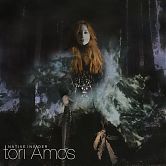
Native Invader (album, 2017)

Unrepentant Geraldines (album, 2014)
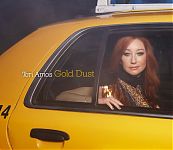
Gold Dust (album, 2012)
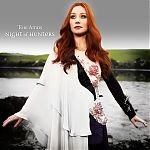
Night of Hunters (album, 2011)
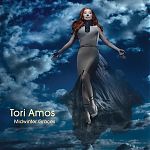
Midwinter Graces (album, 2009)
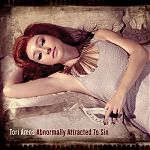 Abnormally Attracted To Sin (album, 2009)
Abnormally Attracted To Sin (album, 2009)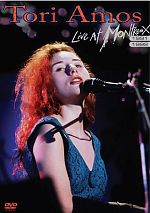
Live at Montreux 1991/1992 (DVD, 2008)
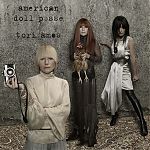
American Doll Posse (album, 2007)

A Piano (boxed set, 2006)
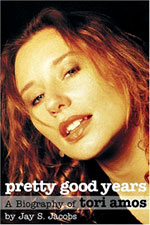
Pretty Good Years
(bio, 2006)
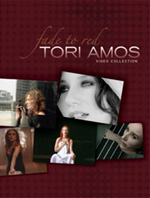
Fade To Red
(DVD, 2006)
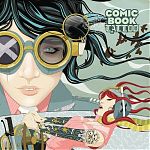 Comic Book Tattoo (book, 2008)
Comic Book Tattoo (book, 2008)News: Polari Interview (December 7, 2009)
Doug Morris and I talked about making them not exclude people who don’t buy the Christian ideology hook, line and sinker. That was really the beginning, along with writing some originals. He talked to me about that, about the challenge of getting him to like them as well as someone like my mom, who is a Christian.
Polari Magazine’s Christopher Bryant spoke to Tori the morning after last week’s special concert at The Jazz Cafe and the interview was posted on their website today. In it, they discuss that performance, performing in general, The Light Princess and, in some more detail than other recent interviews, Midwinter Graces.
The Sound of Wonder: An Interview with Tori Amos
By Christopher Bryant
December 7, 2009
On December 2, 2009, Tori Amos played at the Jazz Café in Camden, London, to promote her new album Midwinter Graces. No tickets were sold, and the wristbands necessary to secure entry were free and made available only that morning on a first-come-first-served basis. The Jazz Café is a small venue with an official capacity of 350. This was an intimate performance. The set list was equally intimate and more emotionally charged than Tori would play in a concert hall. Songs such as ‘Dragon’ and ‘Doughnut Song’, as well as the new track ‘A Silent Night With You’, made early appearances. A problem with the microphone on the opening song, ‘Lady in Blue’, did not break the magic of the performance. In fact it added to it. When I talked to her the next morning, I opened by asking Tori what she thought about the show.
What an amazing audience. It does have an effect. You can’t control what you’re going to get from night to night – just because of where people are mentally. Sometimes I think that with a gig like that, because it’s so intimate, everybody’s emotions are right there, instead of when you’re in a big place like the Apollo and the parameters and the boundaries are there, and everybody sits in their place. It’s not a living-room type of atmosphere.
What was it like for you going back to a small venue?
There are two things. I would say that when you only play small venues, then you haven’t become larger than life. When you haven’t played a big venue you don’t know what that is. It changes things. You have to then sing to the back row. You have to make sure that you can include all these people in the conversation. When you do that and then come back to a small venue you have to re-approach it. It can be very exposing. When that’s all you know you don’t see it as exposing because you’re just playing your gig.
With big venues there’s a protection – because you’re not so close to each other, and people don’t see you spit, all those real human things. So when you go to the bigger places and come back it’s quite a challenge because you have to not feel under a microscope, and you have to feel ok about being exposed.
The set list felt more emotional than one would get in a concert hall. At what point did you decide what the set list would be?
I did it at sound check.
The thing is that a lot of things were happening. One was that the sound check went fine. What happened then was that we took some photographs and moved the mics around. We should have done another ten-minute sound check after that to bring it back to where it was. But because people were out in the rain and we wanted to get them in – some of them had been out there for a real long time – that little extra procedure slipped through the cracks. Normally the last thing that happens on stage is the check.
When you’ve done enough shows you know how to make that part of the show. Things like that are human, and you can make them part of the conversation. What was tricky was that the electronic keyboard was going out of pitch in certain registers, which was not happening in sound check. That’s my keyboard. It’s just been with me in Australia. There have been no issues with it. I had it with me on the whole tour. And it was going in and out of tune depending on the register, starting with the second song, ‘Concertina’.
As a performer you’re having to think really fast: “what register am I ok in? I know Mark will cover me and he’ll pull it down in the mix” … Your mind is really working. And at some point after the second song I just said “I’ve got to surrender, because this is beyond my control. If I don’t play it again for the rest of the show, for the people who don’t know there’s a pitch issue, they’re gonna think ‘why did she only have that keyboard there to play one song’.” In my mind I was reconstructing the whole show. And I thought “what I have to do is allow the vulnerability to take over”. Because when you’re out of control like that, when something messes up then you either lose the show, and you become removed, or you just say fuck it, I can play the piano, I can sing these songs. I think I was feeling a little defeated, so my heart opened up, and then that’s when I think it all began.
I have to say that you definitely felt that.
Isn’t it strange how that set of circumstances can work for you or can work against you? I would have told you that I would never have wanted something to go wrong. You don’t want things to go wrong. But when they go wrong sometimes that is when you have a special show. Because it puts you in a place of having to relate. To not just be a performer but to react to something very real.
Midwinter Graces is an unconventional seasonal album because it does not recreate a romanticised idea of Christmas. How did it come about, and what time of year did you write the songs?
I wrote the songs last spring. Doug Morris said to me, “I’ve always wanted to know what you would do with the old carols”. He said, “I’m not a religious person, and I’m Jewish, and I know we don’t want to offend your mother either, so how can you re-approach them in the 21st Century without losing their specialness?” And we talked about making them not exclude people who don’t buy the Christian ideology hook, line and sinker. That was really the beginning, along with writing some originals. He talked to me about that, about the challenge of getting him to like them as well as someone like my mom, who is a Christian.
There are two duets on the album, ‘Candle: Coventry Carol’ with your niece, Kelsey Dobyns, and ‘Holly and Ivy and Rose’ with your daughter Tash. How did these come about?
It started with Kels, Tash’s older cousin. Kels has been singing for years and is in performing arts school in Boston. She has a really big instrument. I thought we had to do something together that works. ‘Candle: Coventry Carol’ in itself is an ancient song, and I thought it would lend itself to that. And then Tash was thinking she wanted to do a bawdy song. And I said no. She wanted to do a bawdy British schoolboy read on a carol. And I said, “no, we’re not doing that, we’re not shocking grandma”. I came up with this idea of ‘Holly, Ivy and Rose’ and she really took to that idea. So in the end both of them are there. And I thought that was important because we all sing together.
You’ve talked about the Cornish influence on the carols you have chosen, and how Nowell was of Cornish origin. How much of an influence has living in Cornwall had on your musical outlook?
It’s strange because I travel a lot, but Mark’s power point is Cornwall. Both he and Tash are so connected to the land. So connected. It’s similar to what I feel when I am in the southwest in the States. There are certain power points that I can step into, such as the Blue Ridge Mountains in North Carolina. My mother is from Chattanooga. When I am up in the Blue Ridge, and the Smoky Mountains – where they cross – I am right back there with my great grandmother who fled the trail of tears. I am there with her in spirit. I feel that Cornwall does that for the two people that really are the centre of my life.
I don’t have the keys to unlock the codes of Cornwall. It’s not in my bloodline. It’s in theirs. You can see the strength they get from it. I’ll wake up, and it’s beautiful, but I’ll say “it’s raining again”, and the two of them are ok with it. It’s no different than the fact that heat doesn’t bother me, whether we’re in the desert or the beach house in Florida. I wrote a lot of the new record at the beach house because that’s a huge power point for me. The Seminole Nation was there. And where we are used to be part of ceremonial ground. There’s a great history there.
I have a fascination with where things come from, and when I began to find out about the Cornish influence it really was a coincidence that the two closest people to me have this connection. And I felt like I had to tell the world. Because everybody thinks Nowell is from the French.
I was researching from the Oxford Book of Carols and it explains the origins. I started to see that Cornwall had a huge influence, not just on that song but on a lot of the songs that the Americans then took the melodies from for their church music. A lot to them might have been folk songs, pop songs of the day, before the Christology was put to it.
The penultimate track, ‘Winter’s Carol’, is from the musical The Light Princess. What stage of development is this at?
It’s in process. A lot of things happen quietly. It’s such a big undertaking. And it’s such a great team. A very serious team. The playwright Samuel Adamson has just got Breakfast At Tiffanys, the new adaptation, up. And the producer, Tim Levy, is on Broadway now, and I see him a lot in New York. We have had a lot of sessions that nobody knows about. And I write a lot on the road.
We’re getting to place where it will hopefully be in workshop next year. I don’t see it going up in 2010, just because it’s such a massive undertaking. Once we get it to where it needs to be, putting it on, the next phase, is a huge production. I’m hoping it will be on in 2011.
‘Winter’s Carol’ is the teaser, then?
Yes. And the team were all fine with it. They were saying, “you’re making a midwinter record, how can you not have ‘Winter’s Carol’ on it?” This is my version of it, anyway. When it’s done with the full company it will be quite different.
How are you finding it writing for different voices?
Hugely challenging; but I like a challenge. It’s been good because I don’t have to worry if it works with me as Tori. Sometimes you’ll write something for a character that you don’t particularly feel you are close to. You might like her, and think secretly, “she’s just fabulously evil!”. Then you start writing from a perspective, especially when you’re writing with a playwright like Sam, who has got the characters really fleshed out.
It’s a very integrated work. From the producer to the writer to the songwriter we are all developing it together. It’s not as if the songs are being written without the playwright being involved, or the other way around. Things are shifting all the time and that’s why I think it’s taking so long, because you can’t keep a song if a scene shifts totally. You have to write something that works for the scene.
To finish, I want to ask about the big-band sound on ‘Pink and Glitter’. Before this album you had two big-band songs on the Mona Lisa Smile soundtrack. Would you think about working again in this genre?
That was such a high working with them. Most of them were older guys. It’s a lifestyle, it’s in their blood. The music. The nostalgia. They are those guys. Yes of course they’re working musicians and they think about being paid. But they weren’t looking at the clock. They’re tough old New York brass players. But they have such a devotion to big-band music. It’s their passion. So to work with people who are so passionate was something that I loved.
I’m passionate about the music I work with, but it’s not always like that. Sometimes you get in a big string section, and some of the players are there emotionally and some are just going to do their next gig. I didn’t feel that way with the big-band guys. What I would say to you is that people who play that kind of music, it’s part of who they are, it’s their soul, and so yes I’m drawn to it.
I can’t tell you that I’m going to do it again but I can’t tell you that I’m not. I have to wait to see what the song girls become.


